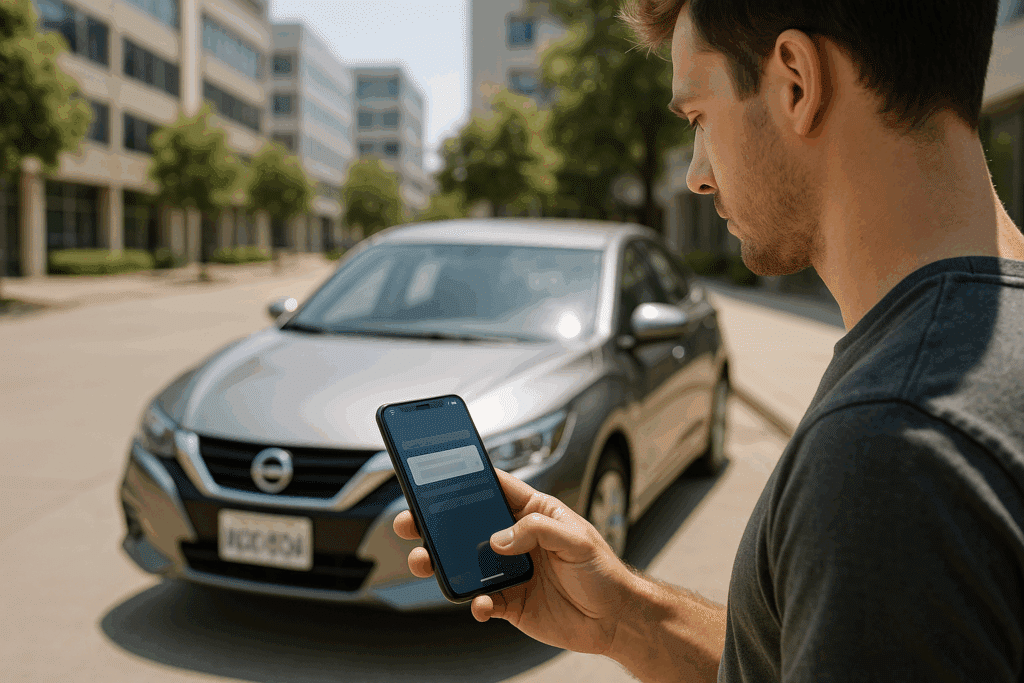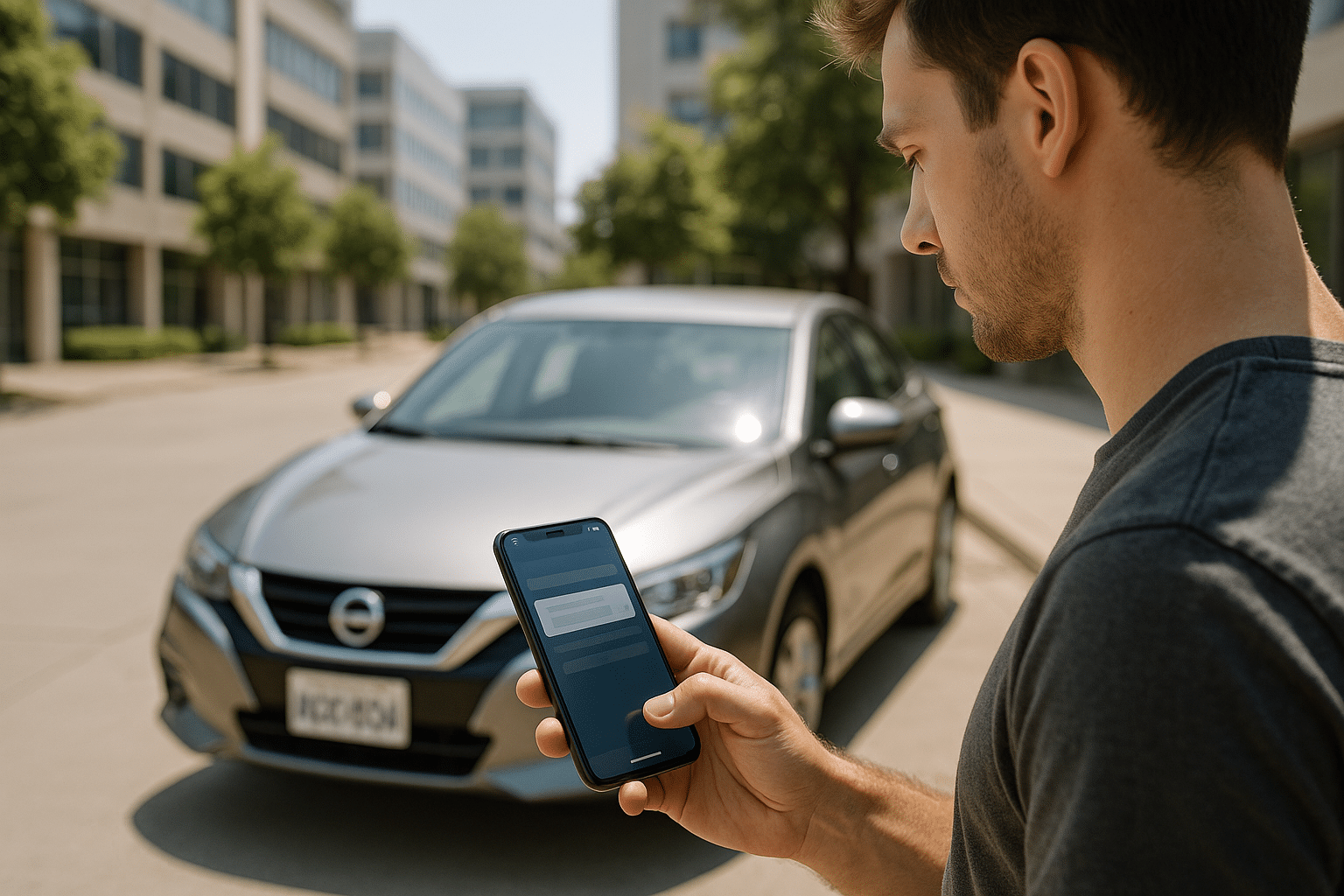Anúncios
Unlock Full Vehicle Details in Seconds: Free License Plate Lookup Guide
Unlock full vehicle details in seconds.
No fees. No signup. Perfect for used car buyers, dealers, and savvy shoppers.
Anúncios
Enter the license plate and reveal every essential fact about any car.
Instant Insights at Your Fingertips
Instant insights on make, model, year, mileage and accident history.
Anúncios
Data sourced from official registries and service records. Zero guesswork. Pure transparency.
Totally free. No email required. Works on desktop or mobile.
Compare listings, verify claims and avoid costly surprises.
Key Benefits of License Plate Lookup
- Complete ownership history
- Detailed maintenance logs
- Accident and recall alerts
- Real-time registration status
- Market value estimates
Explore the step-by-step process and start making smarter car choices today.
Unveiling the Mystery: How License Plate Lookup Works 🔍
When you think about a simple license plate, it might not seem like much more than an alphanumeric identifier plastered on a bumper.
However, behind that string of characters lies a wealth of information stored in a variety of databases maintained by governments, insurance companies, dealerships and private aggregators.
In this section, we’ll break down how license plate lookups actually operate and why you can access such details for free and without creating an account.
Data Sources Behind the Lookup
First, license plate lookup services collect raw data from public records like vehicle registration, inspection certificates, accident reports and theft registries.
Some providers partner directly with department-of-motor-vehicles offices, while others aggregate data from multiple secondary sources, including:
- Government registries
- Insurance claim databases
- Open data portals
- Vehicle auction sites
How The Data Is Processed
Next, this data is indexed into searchable formats, so when you enter a plate number, the system cross-references it against multiple tables.
Advanced services use caching techniques to speed up queries and even apply machine-learning algorithms to enrich records with additional insights, like ownership transfers or typical maintenance issues for that make and model.
Since modern APIs and web interfaces can handle large volumes of requests, many services can offer instant results without requiring you to sign up.
They simply limit the number of queries per IP address or show ads to monetize free usage.
Why This Matters to You
This approach benefits users who need a quick check—whether you’re buying a used car, avoiding hidden liens, or verifying a vehicle’s status before renting it for a road trip.
No complicated forms or fees—just type the plate and get instant results.
Decoding the Mechanics: Behind the Scenes of Plate Databases ⚙️
License plate databases aren’t monolithic vaults; they’re often comprised of multiple interconnected layers, each responsible for a specific type of record.
Think of it as a library where books are organized by genre, author and publication date.
When you search for a plate number, the system simultaneously queries the “Registration History” shelf, the “Accident Reports” shelf and even the “Theft Alerts” shelf.
Key Components of These Systems
- Data Ingestion Modules: These routines fetch new records daily from official sources.
- Indexing Engines: They create fast lookup tables so that queries return in milliseconds.
- Normalization Layers: These standardize different data formats (e.g., date stamps, location codes) into a common schema.
- API Gateways: They throttle requests and handle free vs. paid access levels.
Ensuring Accuracy and Transparency
Moreover, many platforms implement regular data auditing to ensure accuracy.
For example, if a vehicle changes hands or receives a new inspection sticker, that update propagates through the system automatically.
Some services even crowdsource corrections from mechanics or car enthusiasts, adding user-submitted photos and notes.
All this complexity happens behind a simple search box where you type in “ABC1234” and get back a comprehensive snapshot of a vehicle’s life story.
Top Free Online Services You Can Trust 🌐
Finding a reliable, no-signup-required platform can feel like searching for a needle in a haystack.
To save you time, we’ve tested dozens of sites and identify the most efficient ones offering free license plate lookups.
Each service we recommend below balances speed, accuracy and data breadth, ensuring you get the insights you need without handing over personal details.
What to Consider When Choosing a Platform
- Query limits per day
- Detail depth (accidents, title status, liens)
- Ad experience vs. pop-up invasiveness
- Additional tools such as VIN decoding or valuation
Leading Web Platforms 🖥️
These websites dominate the free lookup space.
They combine official records with user-friendly interfaces, often allowing batch searches or exportable reports.
| Platform | Main Features | Query Limit | No Signup? |
|---|---|---|---|
| PlateFinder | Accident history, theft alerts, title checks | 5/day | Yes |
| AutoTrace | Insurance claims, salvage records, owner history | 3/day | Yes |
| CarPlateInsight | Registration changes, previous auction listings | Unlimited (ads) | Yes |
Each of these platforms offers a clean, ad-supported environment that lets you dive into a vehicle’s past without creating an account or entering your credit card details.
Simply type the license plate, hit “Search” and wait for the report to load.
Mobile Apps That Deliver 📱
For those on the go, mobile apps let you snap a photo of a plate or type it in manually to retrieve instant results.
They’re perfect for roadside checks or dealer visits.
Below is a quick overview of standout apps available on both iOS and Android:
Popular Apps for License Plate Lookup
- PlateSnap – OCR scanning, push notifications for updated records, offline caching.
- CarCheckPro – Real-time API integration, VIN decoding, customizable export to PDF.
- QuickPlate – Voice recognition input, speed dial customer support, built-in map of recent incidents.
These apps emphasize usability: you don’t need to navigate complex menus.
A single tap on the “Scan” button activates your camera, aligns the plate, and returns a summarized report in under five seconds.
Plus, they usually store a local history log so you can revisit past searches without re-fetching data.
Step-by-Step: Mastering a License Plate Search 📝
Whether you’re evaluating a potential purchase or just satisfying your curiosity, a structured approach ensures you extract the most relevant details.
Follow these steps to become a true license plate lookup pro:
- Choose your platform: Opt for a no-registration service like PlateFinder or CarPlateInsight.
- Enter the plate number: Double-check each digit and letter to avoid typos.
- Verify the region: Some plates look identical across states; confirm you’re searching the correct jurisdiction.
- Review basic info: Check make, model and year to ensure you pulled the right vehicle.
- Deep dive into history: Look for accident records, title status changes, and lien details.
- Cross-reference with VIN: If available, use the VIN to confirm or expand your findings.
- Save or export: Download a PDF report or take screenshots for future reference.
- Repeat if necessary: If you hit a query limit, try a different service to gather additional data.
Understanding Your Findings: Turning Data into Insight 💡
Once you’ve collected raw data from your license plate search, the next challenge is interpreting it correctly.
Not all entries carry the same weight—knowing which details matter and which are merely noise can save you from costly mistakes.
What to Look Out For
For example, a single minor fender-bender reported three years ago may not be a deal-breaker, but multiple accidents within a short timeframe could indicate poor maintenance or hidden mechanical issues.
Similarly, a “salvage” or “rebuilt” title suggests extensive damage, while a lien notice tells you the seller might not have the legal right to transfer ownership.
Key Points to Consider
- Date relevance: Older incidents usually have less impact than fresh ones.
- Severity levels: A parking lot ding vs. a major collision.
- Consistency checks: Make sure VIN and plate information match across records.
- Title status: Clean, salvage, flood, or rebuilt.
- Ownership timeline: Frequent transfers could reflect flips or leasing arrangements.
By focusing on these critical factors, you’ll be able to make an informed decision about whether to proceed with a purchase, negotiate a lower price, or walk away entirely.
Remember, the goal is not just to gather data, but to apply it intelligently.
Real-World Scenarios: When and Why to Use a Plate Lookup 🚗
License plate lookups aren’t limited to used-car shopping.
In everyday life, there are countless situations where quick access to vehicle information can come in handy:
- Parking disputes: Documenting a hit-and-run or a blocked driveway by identifying the offending vehicle.
- Neighborly concerns: Verifying if an unfamiliar car loitering on your street has a registered owner or theft flag.
- Carpooling groups: Ensuring everyone in your casual ride-share is driving a legitimate, insured vehicle.
- Commercial checks: Fleet managers confirming their drivers’ rented or leased vehicles are free of liens.
- Collector research: Classic-car enthusiasts investigating provenance and accident history for rare models.
Imagine you’re at a community block party and notice a suspicious sedan circling the neighborhood.
By snapping the license plate and running a free lookup, you can verify if the vehicle has any theft alerts or expired registration alerts.
In short, a simple plate search can enhance personal security and streamline countless small tasks in both personal and professional contexts.
Stay Safe and Compliant: Legal and Ethical Plate Lookup Tips ⚖️
While accessing free vehicle data can be incredibly useful, it’s essential to respect privacy laws and use the information responsibly.
Not every jurisdiction permits unrestricted plate searches, and misusing data can lead to legal consequences.
Best Practices to Keep You Compliant
- Check local regulations: Some states or countries require you to be a law enforcement officer or have a legitimate interest to query certain records.
- Use reputable services: Avoid shady websites that request personal data in exchange for plate info; they might be phishing for identity theft.
- Avoid sharing sensitive results: If you uncover a personal owner’s address or phone number, do not distribute it publicly.
- Limit your scope: Stick to essential details like title status and accident history, not private owner details.
- Respect opt-out requests: If someone asks you to remove their vehicle from your personal database, comply if they have a lawful right.
By following these guidelines, you can leverage powerful plate lookup tools responsibly, avoiding potential fines or privacy breaches.
After all, the goal is to stay informed, not to invade anyone’s personal life.

Conclusion
License plate lookup tools unlock a treasure trove of vehicle information in seconds.
They offer unparalleled transparency for buyers, sellers, fleet managers, and curious owners alike.
Using free, no-signup platforms and mobile apps, anyone can access ownership history, accident records, recall alerts and more with ease.
Making informed decisions starts with reliable data.
By understanding how these lookups work and applying insights wisely, you protect yourself from costly surprises.
Start using trusted services today and turn a simple license plate into your best automotive detective.
Drive smarter, safer, and more confidently with instant access to vehicle history—no strings attached.



